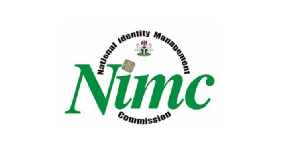The National Identity Management Commission has commenced what it described as its first-ever nationwide capacity-building exercise, involving all 3,785 of its staff members across the country.
According to a statement released on Saturday, the training is being conducted simultaneously across states and local government areas, cutting across every cadre of the commission’s workforce. The initiative follows a directive by President Bola Tinubu, who had called for enhanced staff training across Ministries, Departments, and Agencies as part of efforts to boost efficiency in public service delivery.
The commission described the development as “historic,” noting that never before had the entire NIMC workforce been enrolled in capacity-building programmes at the same time.
“Historically, in a first-of-its-kind initiative in the annals of the National Identity Management Commission, all 3,780 staff members have embarked on capacity building across all departments and units of the Commission in line with the directive of President Bola Tinubu on staff capacity building across MDAs,” the statement read.
Until now, staff development within NIMC had been limited, with training described as “minimal.” However, this approach shifted following the appointment of Dr Abisoye Coker-Odusote as Director-General. Since assuming office, Dr Coker-Odusote has not only prioritised training but also rolled out a series of measures aimed at improving staff welfare and operational efficiency.
These include the distribution of over 2,500 enrolment devices to strengthen data-capturing capacity, implementation of a 25 to 35 per cent salary increase for staff following federal approval, provision of extra transport allowances, and introduction of free buses for staff at NIMC headquarters in Abuja to ease commuting challenges.
The statement added that state and local government staff had expressed appreciation to Coker-Odusote for ensuring that the training and welfare initiatives were inclusive.
“Staff from the states and local government offices deeply appreciated Dr Abisoye Coker-Odusote for driving inclusive staff capacity building, promoting staff welfare, providing work tools and resources, providing modern furniture, boosting staff morale with unprecedented welfare packages, and building a workforce that delivers on the Renewed Hope Agenda of President Bola Tinubu,” the commission stated.
Beyond staff welfare, NIMC is also focused on improving the quality and speed of its services. Last month, the commission unveiled its Service Charter in Abuja, outlining a target to improve service delivery by 30 per cent within one year.
Represented at the launch by the Director of the Inspectorate and Enforcement Unit, Mr Elias Okafor, the Director-General explained that the goal was to make Nigeria’s identity management system more efficient, accessible, and user-friendly. Coker-Odusote emphasised that the commission would work to reduce waiting times for enrolment and card issuance by at least 30 per cent in the next 12 months.
Analysts note that the NIMC’s recent reforms could mark a turning point for Nigeria’s identity management system, which has long faced challenges of slow service, inadequate infrastructure, and undertrained staff.
By investing in training, improving staff welfare, and providing modern equipment, the commission aims to build a more motivated workforce capable of meeting Nigeria’s growing demand for reliable identity services.
With over 200 million citizens relying on the commission for enrolment, verification, and identity management, the reforms are expected to have far-reaching benefits for governance, security, and economic planning.
The NIMC said the new training exercise and welfare measures are in line with President Tinubu’s Renewed Hope Agenda, which prioritises public sector reforms to deliver better services to Nigerians.
“The commission remains committed to improving service delivery, building staff capacity, and ensuring that Nigeria’s identity management system becomes a model of efficiency and reliability,” the statement added.
For many staff members, the recent changes represent the most significant improvements in NIMC’s history, combining both professional development and personal welfare. As one senior staff member put it, the reforms signal that “NIMC is finally building not just a system, but a culture of excellence.”
Business News of Sunday, 14 September 2025
Source: www.punchng.com
NIMC begins staff training
Entertainment












